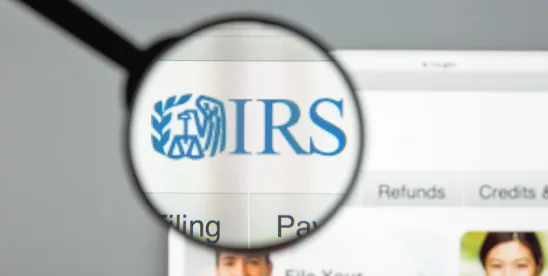The Internal Revenue Service (“IRS”) recently collected a groundbreaking $263 million in a settlement that ended an offshore tax evasion scheme that had gone on for over a decade. This settlement concludes one of the largest IRS whistleblower cases ever. By comparison, the IRS collected a total of $338 million in total from whistleblower cases in fiscal year 2023.
The anonymous whistleblowers in this case will receive a $74 million award. The Internal Revenue Code provides for awards to whistleblowers totaling between 10 and 30 percent of the total proceeds collected by the government, so this $74 million award, at nearly thirty percent of the government’s proceeds, is nearly the largest award allowed by law. This historic whistleblower award reflects the IRS’s increasing focus on its whistleblower program. The $74 million award represents more than all awards paid to IRS whistleblowers in fiscal years 2021 and 2022 combined ($36.1 million in 2021 and $37.8 million in 2022), and rivals the $88.8 million in awards paid to 121 whistleblowers in 2023. However, the award is well below the largest ever provided: in 2009, the banker who blew the whistle on Swiss bank UBS’s tax evasion scheme received a $104 million award from the $780 million recovery.
What is the IRS Whistleblower Office
The IRS has been empowered to pay awards to whistleblowers since 1867, but the modern program took form in 2006 with the passage of the Tax Relief and Health Care Act of 2006. Section 406 of the Act established the IRS Whistleblower Office, which provides whistleblowers who submit information regarding unpaid tax debts of $2 million or more with the opportunity to receive a financial award, generally ranging between 15 and 30 percent of the proceeds collected that are attributable to the whistleblower’s information.
How to Submit an IRS Whistleblower Claim
Before submitting an IRS whistleblower claim, it’s best to contact an attorney. To participate in the IRS whistleblower program, whistleblowers must use IRS Form 211, Application for Award for Original Information, and ensure that it contains information required by the IRS Whistleblower Office, including a description of the alleged tax noncompliance, a written narrative, information to support the narrative, a description of supporting documents not in the whistleblower’s possession, and an explanation of how the whistleblower became aware of the information. The Internal Revenue Manual Part 25.2, Information and Whistleblower Awards, provides substantial details on the procedures for filing an IRS Whistleblower claim.
Who is Eligible to File a Claim for an IRS Whistleblower Award
With some exceptions, any individual is eligible to file a claim for an award and to receive an award under section 7623 of the Internal Revenue Code. Some individuals are not eligible, as described on the IRS Whistleblower Office’s website. Ineligible individuals include: employees of the Department of the Treasury; individuals who obtained the information through their official duties as an employee of the federal government; individuals who were required by federal law or regulation to disclose the information; individuals who obtained the information based on a contract with the federal government; or individuals who filed a claim for an award based on information obtained from an ineligible whistleblower.
What are the Rules for Getting an IRS Whistleblower Award
Internal Revenue Code section 7623 provides for awards when the IRS takes action based on a whistleblower’s submission of information. To qualify for an award under section 7623(b), the collected proceeds must exceed $2 million. The IRS defines “proceeds” to include “penalties, interest, additions to tax, and additional amounts provided under the internal revenue laws and any proceeds arising from laws for which the [IRS] is authorized to administer, enforce, or investigate. This includes criminal fines, civil forfeitures, and violations of reporting requirements.” 26 U.S.C. § 7623(c).
The IRS only provides awards if the proceeds collected were collected (or not refunded) because of the information provided. Claims for an award that provide specific and credible information regarding tax evasion and that lead to proceeds collected may qualify.
In general, where the proceeds collected exceed $2 million, the IRS will pay an award of at least 15 percent, but not more than 30 percent, of the proceeds collected attributable to the information submitted by the whistleblower. The award percentage decreases for claims based on information from a governmental report, a judicial or administrative hearing, or other public sources, or if the whistleblower planned and initiated the actions that led to the noncompliance.
If a whistleblower makes a disclosure that does not meet the size requirements of section 7623(b) (i.e., if the collected proceeds are less than $2 million), the whistleblower may still be eligible for a smaller award under section 7623(a). This section provides for a discretionary award that is capped at a maximum of 15 percent of the collected proceeds.
Protecting IRS Whistleblowers from Retaliation
On July 1, 2019, a new law, the Taxpayer First Act, went into effect. This law provides powerful protections for employees who report or oppose federal tax fraud and provides a shield for whistleblowers who report tax fraud under the IRS Whistleblower Awards program.
Under the Taxpayer First Act, no employer may take adverse action against an employee for providing information regarding underpayment of tax or any conduct which the employee reasonably believes constitutes a violation of the internal revenue laws or any provision of federal law relating to tax fraud, when the information is provided to certain entities or individuals. Those entities or individuals include the IRS, Congress, other federal agencies, a person with supervisory authority over the employee, or any other person working for the employer who has authority to terminate, investigate, or discover misconduct. The Taxpayer First Act importantly protects both internal whistleblowers who report to their supervisors and external supervisors who report to the federal government, including by submitting information to the IRS Whistleblower Program.
In order to successfully bring a claim, a whistleblower must demonstrate (1) that they engaged in protected activity (like reporting what they believe to be tax fraud to a supervisor or to the IRS), (2) that they suffered an adverse employment action, and (3) that their protected activity was a “contributing factor” in the decision to take adverse action against them. Once the whistleblower demonstrates these elements, the employer can escape liability if they by show by “clear and convincing evidence” that the adverse action would have occurred even in the absence of the protected whistleblowing activity.
The Taxpayer First Act is broad in its scope of covered “adverse actions,” which includes harassment, threats, demotion, suspension, and any other form of discrimination. It also explicitly covers as protected activity a report of conduct which the employee “reasonably believes” constitutes a violation of federal law: this “reasonable belief” standard generally means that a whistleblower does not have to be correct about the illegality of the conduct they are reporting, they just need to have a reasonable belief. Consequently, good faith but mistaken reports of illegal conduct could be protected activity.
A whistleblower who has suffered retaliation must file an administrative complaint with the Occupational Safety and Health Administration within 180 days of the adverse action. After the complaint is filed, the whistleblower can exercise a kick out to federal court if no final order is issued in 180 days. Importantly, the Taxpayer First Act invalidates all arbitration agreements and provides whistleblowers with the right to a jury trial. The Act provides a broad spectrum of remedies, including reinstatement, double back pay, and attorney fees and costs.
In addition to the creation of a statutory IRS whistleblower retaliation claim, the Taxpayer First Act provides several other benefits to IRS whistleblowers. Among other benefits, it requires the IRS Whistleblower Office to notify the whistleblower when a case for which they provide information has been referred for audit or examination, to notify the whistleblower when the taxpayer the whistleblower identified has made a tax payment with respect to the whistleblower’s information, and to provide written responses to written requests for information on the status and stage of the whistleblower claim.
How This Month’s Enormous IRS Whistleblower Award is Unusual
Many whistleblowers and their attorneys have complained over the years that the IRS whistleblower program is functioning poorly, with recent years marked by low-value awards and thus fewer whistleblowers incentivized to participate in an investigative process that can take over a decade. The $74 million award provided to this month’s whistleblowers through the IRS Whistleblower Program reflects the beneficial effect of the change in the IRS whistleblower regulations of a decade ago. In January 2013, Senator Charles Grassley sent a letter to the heads of the U.S. Department of Treasury and the Internal Revenue Service (“IRS”) criticizing the IRS for its failure to implement updates to the agency’s whistleblower regulations, as we discussed on our blog in 2013. Among other complaints, Senator Grassley stated that the IRS needed to improve communications by the IRS with whistleblowers to inform whistleblowers about progress towards making a final recovery determination so that whistleblowers do not wait for years with no information about the progress, if any, of any investigation. He also raised concerns about the IRS’s failure to reward whistleblowers where the information provided did not produce an immediate recovery to the IRS, but instead reduced a future refund claim by the company.
In the past decade, the IRS and Congress have made several changes to the laws and regulations affecting the IRS Whistleblower Program. In 2014, the Treasury Department and the IRS published final regulations providing guidance for the IRS Whistleblower Program under Internal Revenue Code section 7623. These regulations, among other things, provided guidance on submitting information regarding underpayments of tax or violations of the internal revenue laws and filing claims for awards, as well as information about the IRS’s determination and payment of awards, and defined key terms used in section 7623.
Next, in 2018, section 41107 of the Bipartisan Budget Act of 2017 amended Internal Revenue Code section 7623 by adding a new subsection broadening the definition of “proceeds” from which awards to whistleblowers may be calculated. And in 2019, section 1405(a) of the Taxpayer First Act of 2019 amended Internal Revenue Code section 7623 and 6103 to add protections for whistleblowers against retaliation, and to add several other provisions to help improve whistleblower service. It also provided for procedures to notify whistleblower when their claim has been referred for examination, at long last responding to one of Senator Grassley’s complaints from 2013.
Perhaps this month’s whistleblower award signifies that the IRS, and Congress, has at last made needed changes to the IRS whistleblower program.



 />i
/>i

